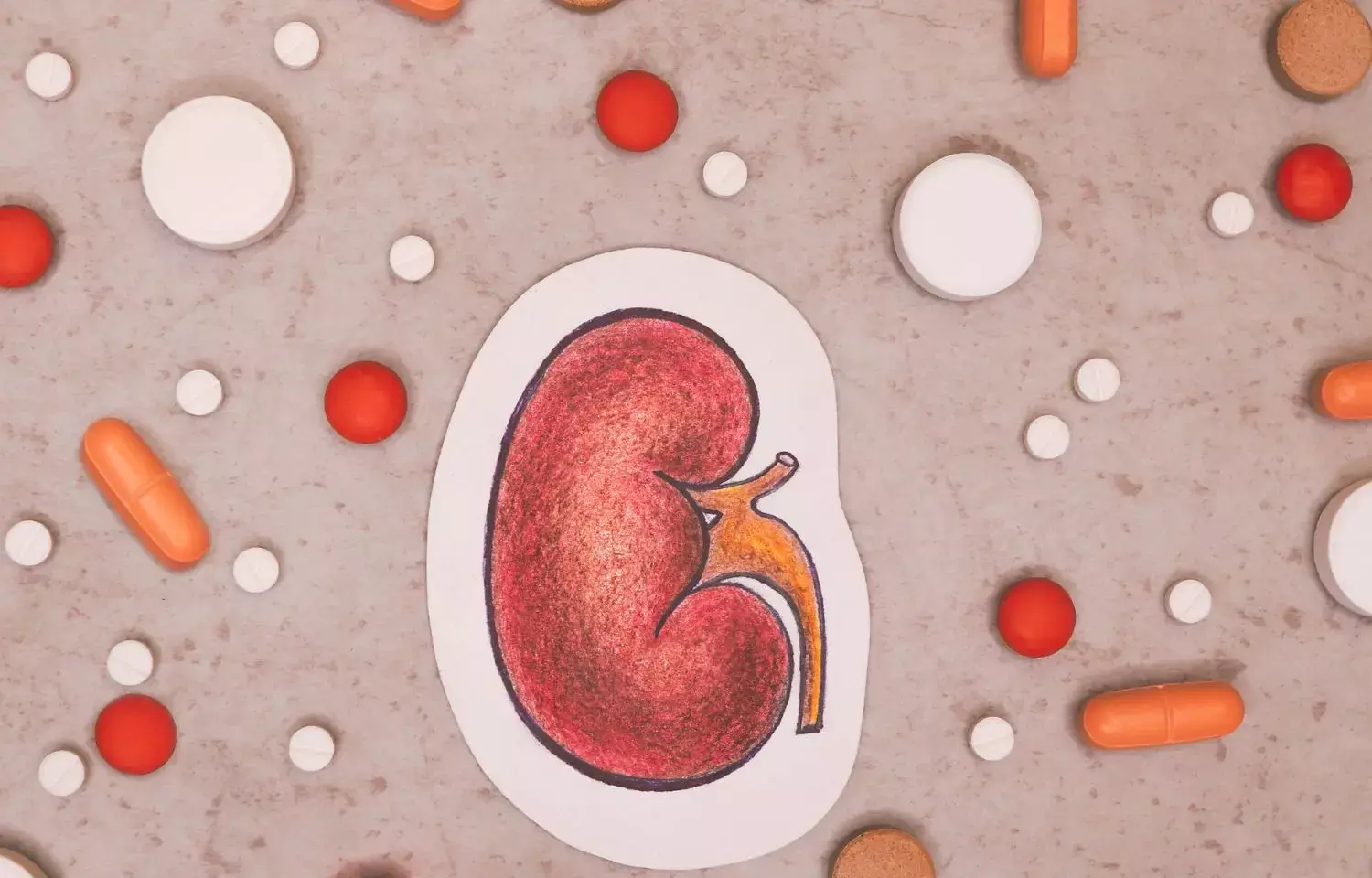- Home
- Medical news & Guidelines
- Anesthesiology
- Cardiology and CTVS
- Critical Care
- Dentistry
- Dermatology
- Diabetes and Endocrinology
- ENT
- Gastroenterology
- Medicine
- Nephrology
- Neurology
- Obstretics-Gynaecology
- Oncology
- Ophthalmology
- Orthopaedics
- Pediatrics-Neonatology
- Psychiatry
- Pulmonology
- Radiology
- Surgery
- Urology
- Laboratory Medicine
- Diet
- Nursing
- Paramedical
- Physiotherapy
- Health news
- Fact Check
- Bone Health Fact Check
- Brain Health Fact Check
- Cancer Related Fact Check
- Child Care Fact Check
- Dental and oral health fact check
- Diabetes and metabolic health fact check
- Diet and Nutrition Fact Check
- Eye and ENT Care Fact Check
- Fitness fact check
- Gut health fact check
- Heart health fact check
- Kidney health fact check
- Medical education fact check
- Men's health fact check
- Respiratory fact check
- Skin and hair care fact check
- Vaccine and Immunization fact check
- Women's health fact check
- AYUSH
- State News
- Andaman and Nicobar Islands
- Andhra Pradesh
- Arunachal Pradesh
- Assam
- Bihar
- Chandigarh
- Chattisgarh
- Dadra and Nagar Haveli
- Daman and Diu
- Delhi
- Goa
- Gujarat
- Haryana
- Himachal Pradesh
- Jammu & Kashmir
- Jharkhand
- Karnataka
- Kerala
- Ladakh
- Lakshadweep
- Madhya Pradesh
- Maharashtra
- Manipur
- Meghalaya
- Mizoram
- Nagaland
- Odisha
- Puducherry
- Punjab
- Rajasthan
- Sikkim
- Tamil Nadu
- Telangana
- Tripura
- Uttar Pradesh
- Uttrakhand
- West Bengal
- Medical Education
- Industry
Patients with chronic kidney disease susceptible to AKI following cardiac surgery

China: The prevalence of cardiac surgery-associated acute kidney injury (CSA-AKI) was high in patients with chronic kidney disease (CKD) which led to a negative impact on both the prognosis for the kidneys and general health, says an article published in the Karger journal Blood Purification.
One of the most frequent side effects of cardiac surgery is cardiac surgery-associated acute kidney damage (CSA-AKI), and patients with chronic kidney disease who develop CSA-AKI have a very bad prognosis for their kidneys and overall health. However, there is not much-published data on the prevalence of CSA-AKI in CKD patients. As a result, Zhang D. and colleagues conducted a study to look into the risk factors and predictive variables of AKI connected to heart surgery in patients with CKD.
For this investigation, CKD patients who underwent heart surgery at a tertiary referral teaching hospital were the subjects of a retrospective study. KDIGO criteria were used to define CSA-AKI. Investigations were conducted into the risk factors for CSA-AKI and the variables influencing renal function recovery at discharge or patient mortality in cases of AKI.
The key findings of this study were:
1. The frequency of CSA-AKI among the 1638 CKD patients recruited was 50.55%.
2. In-hospital mortality was greater for AKI patients compared to non-AKI patients (AKI vs. no AKI, 4.7 vs. 0.9%).
3. Male gender, preoperative hypertension (OR 1.548), preoperative hemoglobin of 110 g/L (OR 2.389), and aortic clamping time >58 min (OR 1.567) were distinct risk factors for AKI following cardiac surgery in patients with CKD, according to multivariate logistic regression analysis.
4. Hyperchloremia (OR 0.927), preoperative diabetes mellitus (OR 0.306), estimated glomerular filtration rate (OR 1.034), and AKI development all had an impact on the recovery of renal function in AKI patients.
5. Patients with AKI stage 2 and stage 3 recovered renal function at rates that were 78.9% and 82.3% slower than those with AKI stage 1, respectively.
In conclusion, the prognosis of individuals with CKD undergoing cardiac surgeries may be improved by early management of modifiable variables.
Reference:
Zhang, D., Teng, J., Luo, Z., Ding, X., & Jiang, W. (2022). Risk Factors and Prognosis of Acute Kidney Injury after Cardiac Surgery in Patients with Chronic Kidney Disease. In Blood Purification (pp. 1–8). S. Karger AG. https://doi.org/10.1159/000526120
Neuroscience Masters graduate
Jacinthlyn Sylvia, a Neuroscience Master's graduate from Chennai has worked extensively in deciphering the neurobiology of cognition and motor control in aging. She also has spread-out exposure to Neurosurgery from her Bachelor’s. She is currently involved in active Neuro-Oncology research. She is an upcoming neuroscientist with a fiery passion for writing. Her news cover at Medical Dialogues feature recent discoveries and updates from the healthcare and biomedical research fields. She can be reached at editorial@medicaldialogues.in
Dr Kamal Kant Kohli-MBBS, DTCD- a chest specialist with more than 30 years of practice and a flair for writing clinical articles, Dr Kamal Kant Kohli joined Medical Dialogues as a Chief Editor of Medical News. Besides writing articles, as an editor, he proofreads and verifies all the medical content published on Medical Dialogues including those coming from journals, studies,medical conferences,guidelines etc. Email: drkohli@medicaldialogues.in. Contact no. 011-43720751


